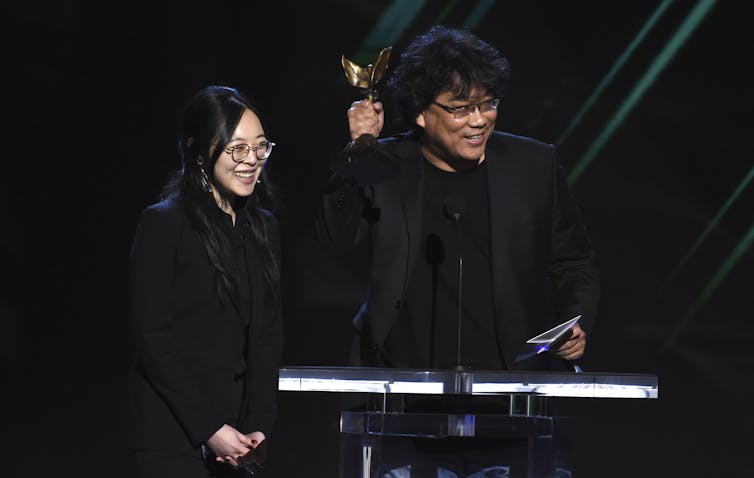
Is Australia an English-speaking country? The answer seems obvious.
Although Australia does not have an official language, English is so pervasive that a full life in Australia is virtually impossible if you’re unable to speak English.
However, census data show more than 20% of Australiansspeak languages other than English at home and over 300 languages are spoken in Australia.
Many of those who speak other languages are not proficient in English and need translators and interpreters to manage their day-to-day lives. Translators and interpreters play an important role in promoting social harmony in Australia, yet so little is known about this group of people.
In fact, many people do not even know the difference between translation and interpreting. The biggest difference between interpretation and translation is that interpreters translate spoken language orally, while translators translate the written word. Both groups possess expert knowledge of a foreign language as well as clear communication skills.
Read more: Squid Game and the 'untranslatable': the debate around subtitles explained
It is perhaps not an exaggeration to say that translators and interpreters are invisible in Australia. Considering their low public profile here, it may surprise some to learn that in some other parts of the world, interpreting is perceived as glamorous and very high profile.
Interpreters as celebrities in Korea
In South Korea, some interpreters, particularly English-Korean interpreters, enjoy celebrity status. They appear frequently in local media as role models for their mastery of English, an extremely popular language in Korea.
One example is Ahn Hyun-Mo, an interpreter who has risen to stardom after interpreting for a series of high-profile events, including the 2018 US-North Korea Summit, the Grammy Awards, and the Oscars. She is a regular guest on various television programs and even models in advertising.
Another example is Sharon Choi, known as the interpreter for Bong Joon-Ho, the director of the Oscar-winning movie, Parasite. Choi’s flawless and eloquent interpreting attracted high praise, with fans across Korea and beyond giving her the title “perfect translator in the world”.

Being an interpreter in Korea usually means that the person has mastered the language “to perfection” through dedication and hard work, hence the high levels of praise. In bookstores, it is not uncommon to find books written by interpreters as well as autobiographies of famous interpreters where they spill their secrets on how to master a foreign language. What a contrast to Australia.
Popularity of interpreting in China
The interpreting profession is also highly regarded in China. Some high-profile interpreters have achieved fame for their excellent interpreting and desirable English accents amid the popularity of English language learning among Chinese people.
A good example is Zhang Jing, known as “China’s most beautiful interpreter”. Zhang’s excellent interpreting and aesthetics became hot news during a bilateral meeting between China and the US in Alaska in 2021. Following the summit, her name became one of the most searched topics on Weibo, China’s social media platform.
Another celebrity interpreter is Zhang Lu, an English-speaking career diplomat who has served a number of Chinese leaders and has attracted dedicated followers thanks to her flawless interpreting. There was also popular television drama The Interpreter, featuring Chinese-French interpreters, which attracted 100 million views in one week after its release in 2016.

Why are translators and interpreters invisible in Australia?
Considering the popularity of interpreters in other countries, it is natural to ask why so little attention is paid to translation and interpreting in Australia. A major factor may be the lack of interest in foreign language learning in Australian society.
Public interest in language learning is dishearteningly low in Australia. A 2018 report showed that only 8% of Australian students say they are learning two or more foreign languages, compared to 50% of students across OECD countries.
Additionally, because English is so prevalent here, fluency in another language is often not appreciated. Under these circumstances, translation and interpreting is usually reserved for people from migrant backgrounds. The dominance of migrants in the translating and interpreting profession may also be another reason why the professions are seldom acknowledged.
Why do we need to care?
The invisibility of translators and interpreters in Australia is not a problem limited to the profession but a social issue. People with little or no English rely on translators and interpreters to manage their day-to-day lives. The profession needs to attract good people to help maintain social harmony in multicultural Australia, but this is a challenge when there is little social awareness or acknowledgement of the important work done by interpreters and translators.
Language is a valuable resource that migrants bring to Australia, and Australia should use its linguistic diversity wisely to build a truly multicultural society. A successful multicultural society is one where value is accorded to all its residents, and translation and interpreting are an ideal place from which to build a more resilient and united Australia.
Jinhyun Cho does not work for, consult, own shares in or receive funding from any company or organisation that would benefit from this article, and has disclosed no relevant affiliations beyond their academic appointment.
This article was originally published on The Conversation. Read the original article.







